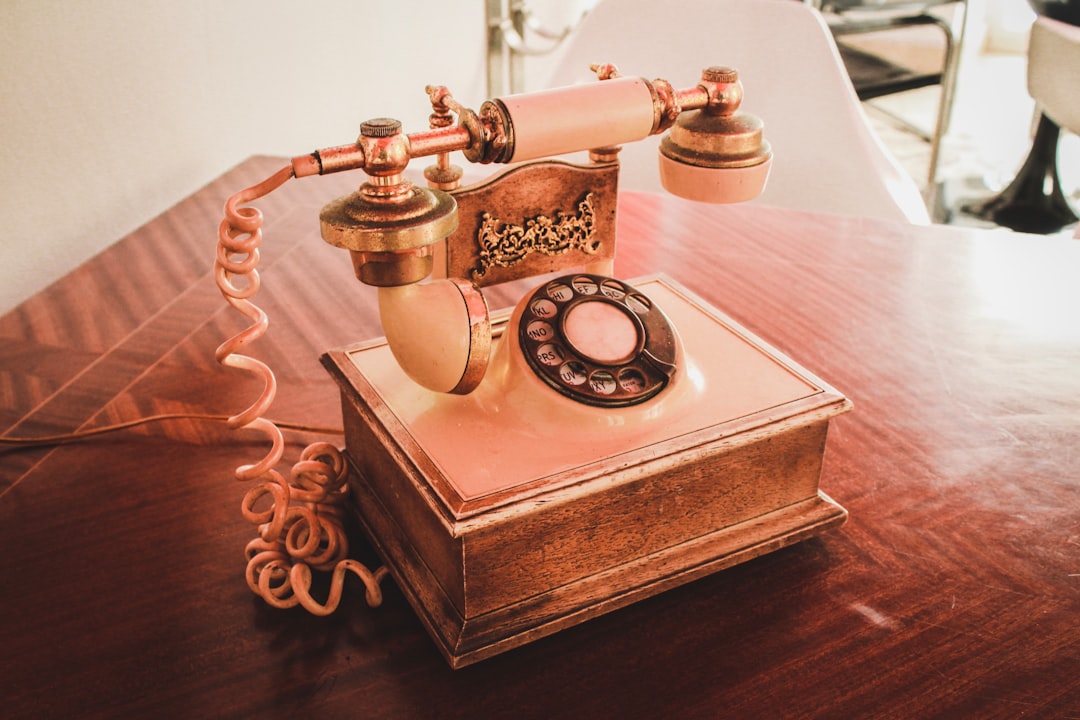Robocalls have become a growing concern in Utah, disrupting daily life and causing privacy issues. The Utah Attorney General's office takes a proactive stance by educating residents about their rights, investigating complaints, and pursuing legal action against companies engaging in excessive or misleading robocalling practices, such as those protected under the Telephone Consumer Protection Act (TCPA). Residents facing unwanted robocalls have legal avenues, including the right to sue for damages under state laws. By filing complaints and consulting consumer protection attorneys, Utahns can combat persistent or targeted robocalls and potentially recover emotional distress and privacy invasion damages. The Attorney General's office, in collaboration with telecom companies, advocates for stronger legislation and improved call blocking mechanisms, empowering residents to take action against violators and create a safer communication environment.
In today’s digital age, Utah residents are increasingly plagued by unwanted robocalls, with millions of calls originating from unknown sources daily. This article explores how Utah’s Attorney General is leading the charge against this nuisance. We delve into the impact of robocalls on the state, the legal powers at their disposal, and whether Utahns can take action, including suing for robocalls. Additionally, we provide practical strategies to mitigate these intrusive calls.
Understanding Robocalls and Their Impact in Utah

Robocalls have become a ubiquitous and often annoying aspect of modern life in Utah, as they are across the nation. These automated phone calls, typically used for marketing or political purposes, can be frustrating for recipients, leading to concerns about privacy and consumer protection. In Utah, where many residents value their peace and quiet, the impact of unwanted robocalls is significant. Not only do these calls disrupt daily routines, but they can also be a source of financial strain, especially when they promote dubious products or services.
When it comes to addressing this issue, Utah’s Attorney General plays a crucial role in protecting the rights of residents. While individuals may wonder can I sue for robocalls Utah?, legal avenues exist to combat this problem. The state’s Attorney General’s office actively works to regulate and penalize companies that engage in excessive or misleading robocalling practices. Efforts include educating the public about their rights, investigating complaints, and taking legal action against violators. This proactive approach not only deters unscrupulous call centers but also provides relief for Utahns tired of receiving unwanted automated calls.
The Role of Utah's Attorney General in Combating Robocalls

The Utah Attorney General plays a pivotal role in combating robocalls and protecting residents from unwanted and fraudulent phone calls. As the state’s top legal officer, they have the authority to take action against companies and individuals engaged in telemarketing fraud, including robocall operations. One of their key responsibilities is to enforce the Telephone Consumer Protection Act (TCPA), a federal law designed to curb excessive or unauthorized automated telephone marketing.
Under this act, Utah’s Attorney General can investigate complaints related to robocalls and take legal action against violators. If you’ve received unwanted robocalls in Utah, you may have the right to sue for damages. The Attorney General’s office provides resources and guidance to help residents understand their rights and navigate the process of seeking compensation for distress caused by persistent or deceptive robocalls.
Legal Options for Residents: Can You Sue for Robocalls?

In Utah, residents have legal options if they’re being harassed by robocalls. While blocking numbers can offer temporary relief, taking more aggressive action is possible for persistent or targeted calls. One option is to file a complaint with the Utah Attorney General’s office, which actively investigates and prosecutes telemarketing fraud, including unauthorized robocalls.
If you’ve received unwanted robocalls and wish to take legal action, consulting with an attorney specializing in consumer protection law can help determine if you have grounds for a lawsuit. In many cases, consumers can sue under state or federal laws for damages resulting from unsolicited calls, including emotional distress and invasion of privacy.
Effective Strategies to Stop Unwanted Robocalls in Utah

In Utah, the Attorney General’s office has been actively fighting robocalls, employing various strategies to protect residents from unwanted calls. One effective approach is to educate citizens on their rights and legal options. Utah law allows individuals to sue for damages caused by robocalls, empowering residents to take action against persistent violators. By raising awareness about this legal remedy, the Attorney General’s office discourages illegal telemarketing practices.
Additionally, they collaborate with telecommunications companies and regulatory bodies to implement stricter call blocking mechanisms. They also advocate for stronger legislation targeting robocallers, pushing for more robust laws that protect Utah residents from these intrusive and often fraudulent calls. These combined efforts aim to create a safer, less disruptive communication environment for all Utah citizens.






